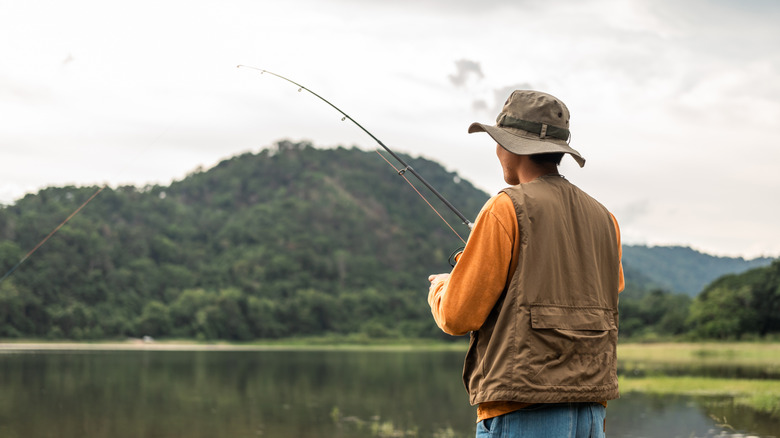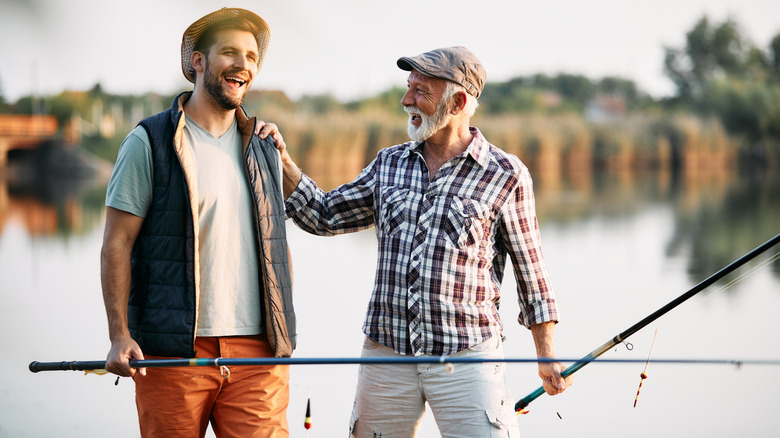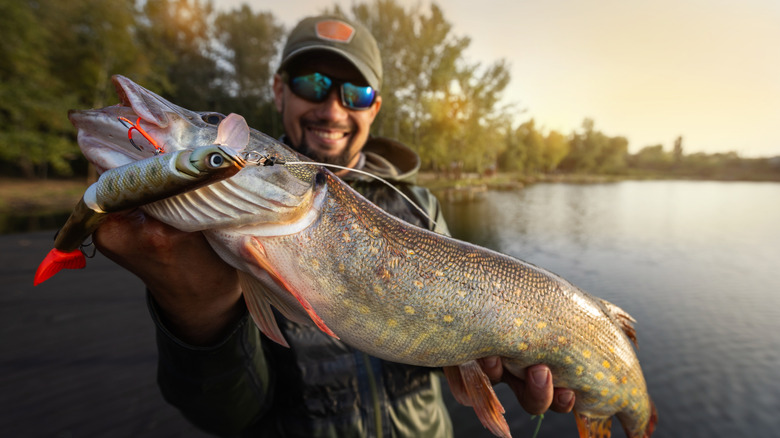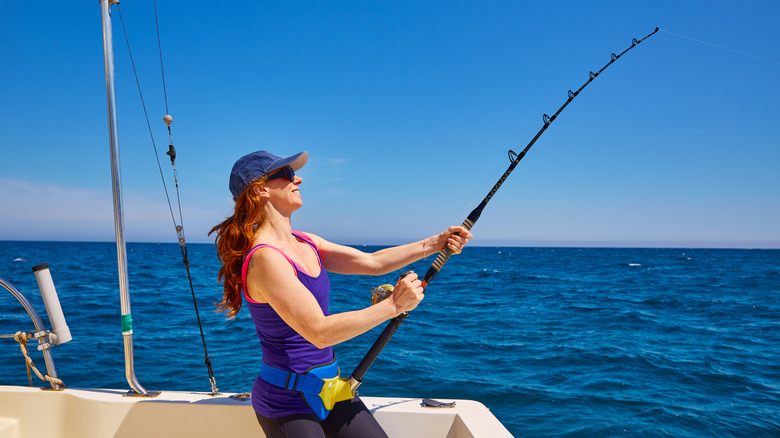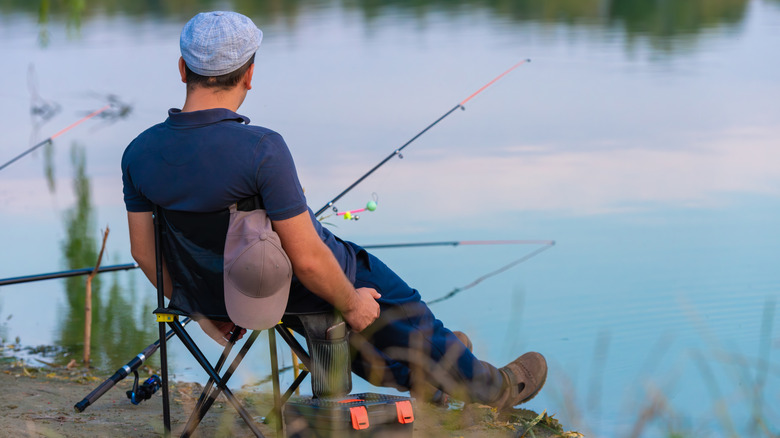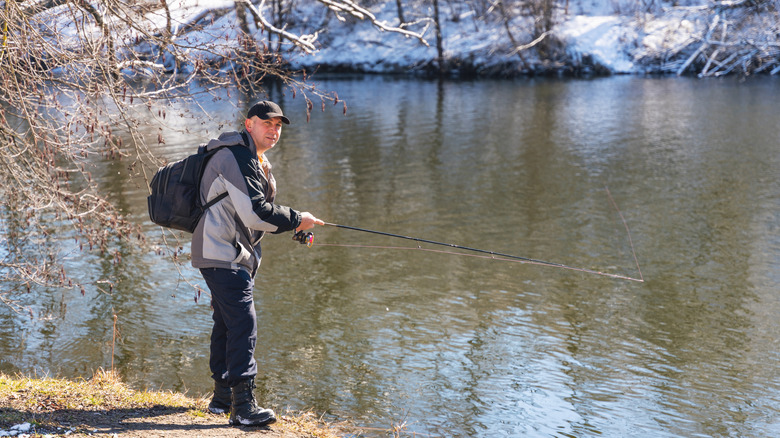The Bizarre Myths That Some Fishermen Still Believe
We may receive a commission on purchases made from links.
Fishermen have a well-earned reputation for being superstitious. There are literally dozens of superstitions that are known from coast-to-coast, as well as countless more local and regional myths. For many anglers, adhering to this mythology is every bit as important to catching fish as choosing the best lures or picking the right time of day to go fishing.
However, even though this may sound like sacrilege to some, believing these bizarre myths will not help you catch more fish. In fact, some of these myths can actually prevent you from catching fish or, at the very least, hinder you from enjoying your day to the fullest. This applies whether you are fly fishing or conventional tackle angling.
Like most myths and folklore found around the world, it is likely that many of these yarns developed from selective observation. In other words, something may have happened a time or two and was taken to be the new golden rule. Others were undoubtedly created as cautionary tales to prevent fishermen from partaking in risky behaviors — fishing in the rain, for example. While this list is by no means complete — there are dozens more that aren't covered here — these are some of the most common bizarre myths that some fishermen still believe.
Talking will scare fish away
Almost anyone who has ever fished has been told to be quiet. The reason given is that talking can scare the fish away. In reality, casual conversation — and even music in some situations — does not cause fish to flee. However, those who believe and adhere to this myth likely do so for one of two reasons: they have witnessed fish spook away from noises or they simply don't want to hear anything themselves.
To that end, there are some sounds that can startle fish. Anything that causes vibrations to move through the water, such as slamming boat hatches, dropping tackle boxes (or other items) in the bottom of a boat, tossing items into the water, or the aforementioned music if vibrating through a boat hull. Even then, however, noises are much more likely to startle fish in shallow, calm water as opposed to deeper, rougher water.
Big fish only eat big baits
Like many of the myths fishermen believe, this one has some truth to it. Big fish will absolutely eat big baits. Big fish need more calories. They also prefer to exert as little energy as necessary in order to consume those calories. Hence, if they can easily grab a big meal, they certainly will. The fallacy comes in believing that big fish will only eat big baits.
Like all fish, big fish are very opportunistic, and the best bait isn't necessarily always the biggest. While they will eat baits far larger than it seems they are capable of consuming, they will also slurp up smaller bait items if they are handy. In fact, there are times where one of the most convenient ways to easily catch more fish, including more big fish, is to go with smaller baits. There have also been countless instances of anglers using small bait while targeting relatively small game fish to have inadvertently hooked fish of grand proportions.
Women were once considered bad luck
This one undoubtedly harkens back to the days of old, when all seafaring pursuits, including fishing, were restricted to men. Over time, as social norms shifted, women began accompanying men on fishing trips and some intrepid, outdoors-minded women even began taking up the sport themselves. Despite this, the myth lingered, perhaps perpetuated by men who were looking for time away from the women in their lives.
Regardless of why or how this belief persisted, in our modern world, it is being debunked on a daily basis. More women than ever participate in the sport of fishing. According to a report by Sports Destination Management, as of this writing, women now make up almost 40% of all anglers in the United States. Not all women fishers are casual, either, as a number work as professional guides or tournament anglers.
The fishing industry has responded by introducing a multitude of products, such as the Frogg Toggs Women's Canyon Stockingfoot Wader, that are specifically designed for women. So, today, with women firmly entrenched in the sportfishing community, anyone who still believes this myth simply isn't paying attention.
Fish bite the least with wind from the east
When wind blows from the west, fish bite the best. When it blows from the east, fish bite the least. That saying, or some derivative of it, has been repeated by fishermen throughout centuries. Likely born from an instance where a fisherman struck out on a day with east wind, as a rule, there is no merit to this myth. The fact it rhymes likely had as much to do with its prevalence as any evidence to support it.
There is no doubt there will be times fishing will be poor on days with wind from various directions. However, much of this also has to do with regional differences. For example, in some areas of the country, easterly winds are the prevailing, or most common, breezes. In these areas, east winds certainly aren't the kiss of death for fishermen. In areas where east winds typically only occur with high pressure systems, the bite may actually wane with an easterly wind flow. So, while there are conditions, areas, and circumstances that can support this, there are a number of instances where fishing is just fine with an east wind.
Game fish become dormant in winter
When winter sets in, many anglers set their rods in the corner and wait for the warmer spring weather to return to fishing activities. There is a common belief that game fish such as bass become dormant in the winter. While some fish species such as koi and gobies do somewhat hibernate, game fish species will still be very much awake, active, and feeding, albeit at a slower pace. This is well known among ice fishermen and those fresh and saltwater fishermen who are willing to brave the winter weather in pursuit of their favorite fish species.
In all likelihood, this myth was created by fishermen who either didn't want to be out in the elements themselves or who had gone fishing in winter and ended up fishless. Either way, it is still very much alive and believed by many fishermen today. However, if you're willing to put on some Fish Monkey wool gloves, Frogg Toggs Amphib Neoprene Waders, and an insulated fishing jacket, you'll likely find you will be plenty comfortable and actually still catch fish, even in the dead of winter.
